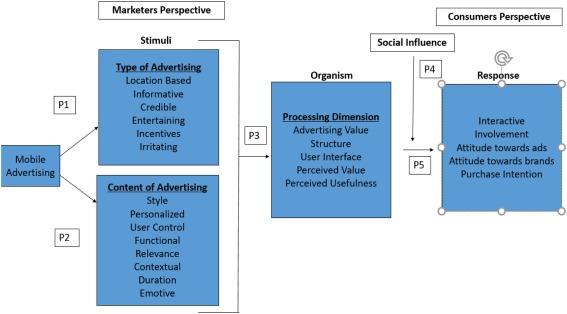Future-Proof Skills: How Educators Are Preparing Students for Tomorrow’s Jobs
In the rapidly evolving job market, educators play a pivotal role in ensuring students are equipped with future-proof skills that prepare them for success in tomorrow’s jobs. With the rise of technology-driven careers, critical thinking, digital literacy, and adaptability are more crucial than ever. this complete guide explores how teachers, schools, and educational institutions are proactively redesigning curricula, integrating innovation, and fostering skills that will remain relevant in the future workforce.
Understanding Future-Proof Skills
“Future-proof skills” refer to competencies that remain valuable amid changing job trends, technological disruptions, and shifting economic landscapes. By equipping students with these skills, educators empower them not only to survive but to thrive in dynamic career paths.
Key future-Proof Skills Students Need
- Critical Thinking & Problem Solving: identifying,analyzing,and overcoming challenges independently.
- Digital literacy: Mastering new technologies, coding, and understanding data ethics.
- Creativity & Innovation: Generating original ideas and adapting to novel scenarios.
- Dialog & Collaboration: Working effectively in teams, communicating ideas, and feedback skills.
- Adaptability: Handling ambiguity, learning continuously, and transitioning between industries.
- Emotional Intelligence: Navigating social situations, self-management, and empathy.
- Entrepreneurial Thinking: Spotting opportunities, resilience, and risk-taking.
How Educators Are Preparing Students for Tomorrow’s Jobs
educational leaders recognize that the best way to prepare learners for the uncertain future is to cultivate relevant, future-proof skills. Here are some modern strategies being implemented in schools and colleges worldwide:
1. curriculum Redesign
- Project-Based Learning: Students engage in real-world problems,fostering teamwork and critical thinking.
- STEM & STEAM integration: Science, Technology, Engineering, (Arts), and Mathematics prepare learners for tech-driven roles.
- Interdisciplinary Studies: Combining subjects to show real-world relevance and encourage holistic thinking.
2. Technology Integration
- Coding and Robotics: Many schools introduce programming and robotics early on to foster digital literacy and problem-solving.
- Digital Tools for Learning: Platforms such as Google Classroom, Microsoft Teams, and education apps enhance collaboration and adaptability.
3. personalized and Adaptive Learning
- Data-driven Instruction: Teachers use analytics to tailor learning experiences to each student’s strengths and areas of growth.
- Online Learning Pathways: Multiple ways to access content encourage autonomous learning and adaptability.
4. work-Based Experiences and Industry Partnerships
- Internships & Apprenticeships: Real workplace exposure ties classroom learning to career skills.
- Guest Speakers & mentorships: Direct interaction with professionals bridges the gap between education and employment.
- Career Fairs & Hackathons: Engaging students with live projects and competitions to develop entrepreneurial thinking.
Benefits of Teaching Future-Proof Skills
Investing in future-proof skills brings a host of long-term benefits to students, educators, and the broader economy.
- Increased Employability: Students transition smoothly into evolving industries.
- Better Problem Solving: Graduates can tackle complex real-world challenges.
- Economic Growth: A skilled workforce drives innovation, entrepreneurship, and job creation.
- Lifelong Learning Mindset: Learners become agile, constantly unlocking new opportunities.
Case Studies: Innovative Schools and Programs
Let’s explore how forward-thinking educators and institutions are shaping success stories with practical future-proof skills.
Finland’s phenomenon-Based Learning
In Finland, schools leverage phenomenon-based learning, where students collaborate across various subjects to solve real-life issues. This fosters critical thinking,communication,and adaptability.
The Massachusetts Institute of Technology (MIT) Maker Spaces
MIT’s maker spaces empower students with hands-on experiences in robotics, coding, and engineering, cultivating creativity, problem-solving, and entrepreneurial attitudes.
Singapore’s SkillsFuture Initiative
Singapore’s SkillsFuture program encourages lifelong learning across all ages, integrating career counseling, technology literacy, and workplace experiences to ensure workforce readiness.
First-Hand Experiences: Voices from Educators
“We focus on teaching creativity and adaptability, because these are the skills our students need for jobs that haven’t even been invented yet.” — Jessica Tran, High School STEM Teacher
“By integrating internships and mentorship opportunities for our students, we help them understand what careers look like in practise—not just theory.” — Marcus Lee, Career Counselor
Practical Tips for Educators to Foster Future-Proof Skills
- Encourage Curiosity: Invite questions, exploration, and experimentation in the classroom.
- Promote Collaboration: Use group projects and peer review to develop teamwork and communication.
- Integrate Technology: Leverage coding, AI-based tools, and digital research in lessons.
- Foster real-World Connections: Organize guest lectures, field trips, and partnerships with local businesses.
- Model Lifelong Learning: continually update teaching practices and attend professional progress workshops.
- Offer Adaptability: Allow students to pursue personalized learning pathways and reflect on their learning journeys.
Conclusion: Equipping Students for Tomorrow’s Success
The future of work is increasingly uncertain, but one thing is clear: future-proof skills are essential for student career readiness and long-term success. By embracing innovative teaching methods, integrating technology, and forging industry partnerships, educators can prepare graduates for a lifetime of possibility, no matter how the job market evolves. Now more than ever, investing in adaptability, creativity, and lifelong learning is the key to unlocking a luminous future for every learner.
Related Keywords:
- Future-proofing education
- 21st-century skills
- Career readiness programs
- Education innovation
- Teaching adaptability
- STEM and STEAM education
- Workforce skills
- Digital literacy for students

